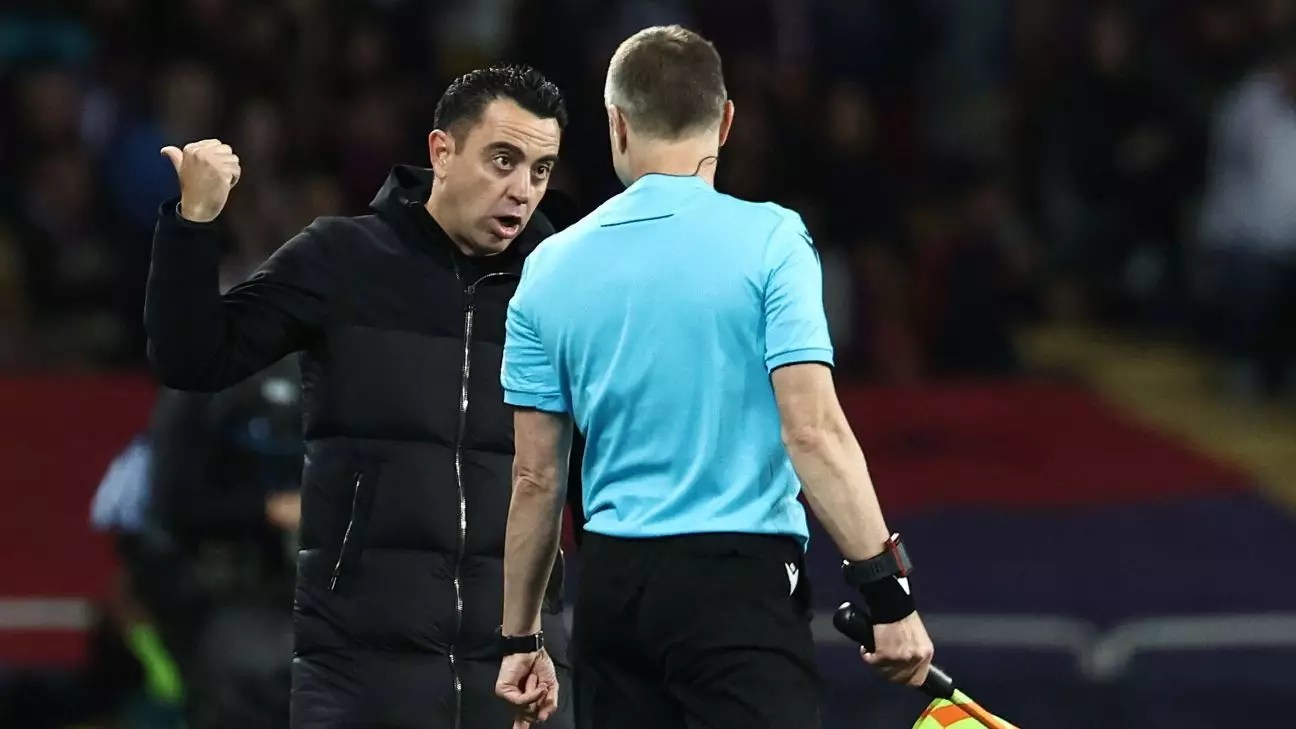When Xavi announced his decision to step down as Barcelona manager at the end of the season due to the toll it was taking on his mental health and morale, it was a red flag indicating the harsh reality of the managerial position at the club. He expressed that the job brought about a feeling of unpleasantness, lack of respect, and cruelty, which ultimately led to a detrimental impact on his well-being. His candid reflection sheds light on the toxic environment that can exist in a high-pressure job like managing Barcelona, where the stakes are always high.
Xavi’s struggle with control as a manager, compared to when he was a player, highlights a common challenge that many former players face when transitioning to the managerial role. As a player, Xavi had total knowledge and control over his inputs and reactions on the field, but as a coach, he must work with incomplete inputs from multiple players and make decisions without being able to control their actions. This loss of control can be daunting, especially for someone as emotionally invested in the club as Xavi, who spent the majority of his life at Barcelona.
Xavi’s deep emotional connection to Barcelona, stemming from his upbringing near the Camp Nou and his extensive playing and coaching career at the club, makes every setback and defeat feel personal. His visceral reaction to failures on the pitch reflects his dedication and passion for the club, but it also exposes his vulnerabilities as a manager. While professionalism demands a certain level of detachment, Xavi’s struggles to compartmentalize his emotions may have hindered his ability to make clear-headed decisions during critical moments, as seen in the Champions League quarterfinals against Paris Saint-Germain.
Xavi’s red card in the crucial match against PSG, as well as the subsequent ejections of his assistant and goalkeeping coach, highlighted a lack of composure and leadership from the Barcelona bench. The tone set by the coaching staff reverberated through the team, leading to individual errors and lapses in judgment that ultimately contributed to the team’s defeat. While there were mitigating factors like injuries and suspensions, Xavi’s role in maintaining control and stability during high-pressure situations cannot be overlooked.
Xavi’s Decision to Step Down
In light of the overwhelming pressures and challenges associated with managing Barcelona, Xavi’s decision to step down appears justified and necessary for his well-being and the club’s future. The toxicity and stress of the job, compounded by personal factors like family and mental health, made it clear that continuing in that role would only lead to further setbacks and potential harm. Xavi’s acknowledgment of his limitations and the need for a fresh perspective indicates a mature and responsible approach to his career trajectory, paving the way for potential growth and success in the future.
Overall, Xavi’s decision to step down as Barcelona manager sheds light on the inherent challenges and complexities of managing a top-tier club like Barcelona. His candid reflection on the toll it took on his mental health and well-being serves as a cautionary tale for aspiring managers and highlights the importance of prioritizing one’s health and happiness in high-pressure environments. While Xavi’s departure may leave a void at Barcelona, it also opens up opportunities for growth, introspection, and renewal both for the club and for Xavi himself as he navigates the next chapter of his career.


Leave a Reply